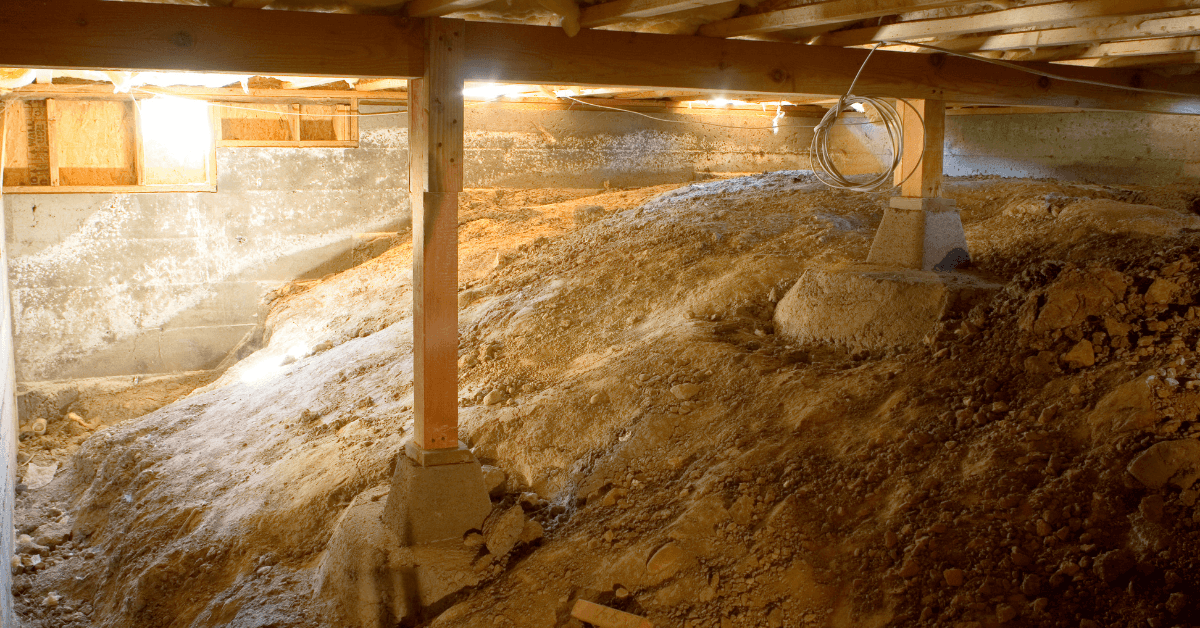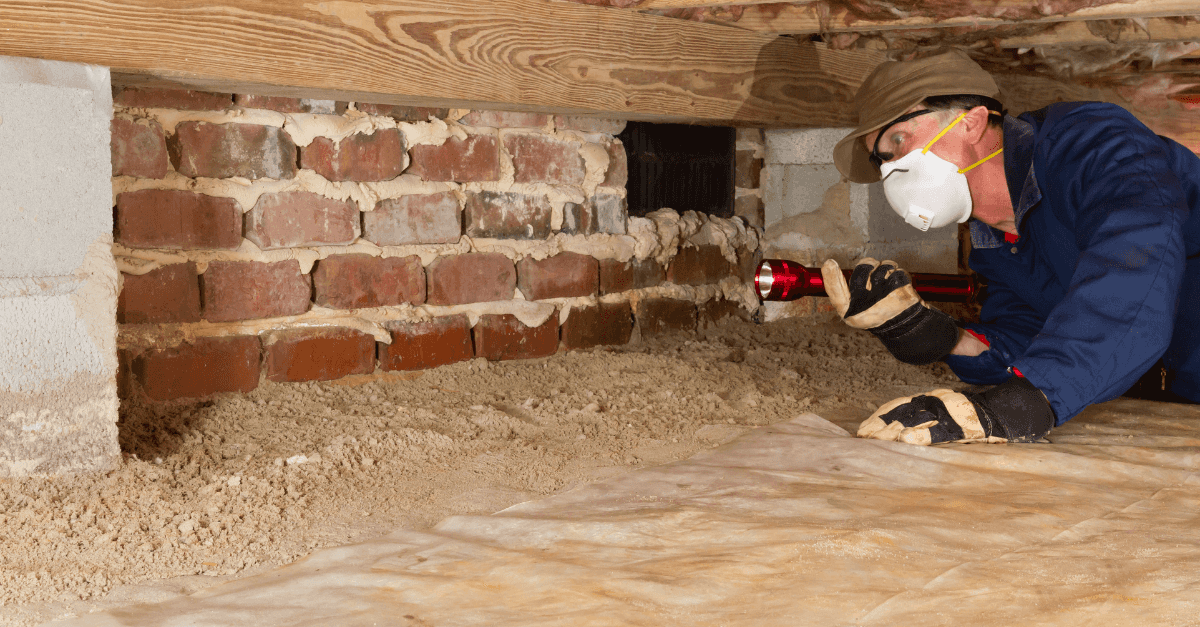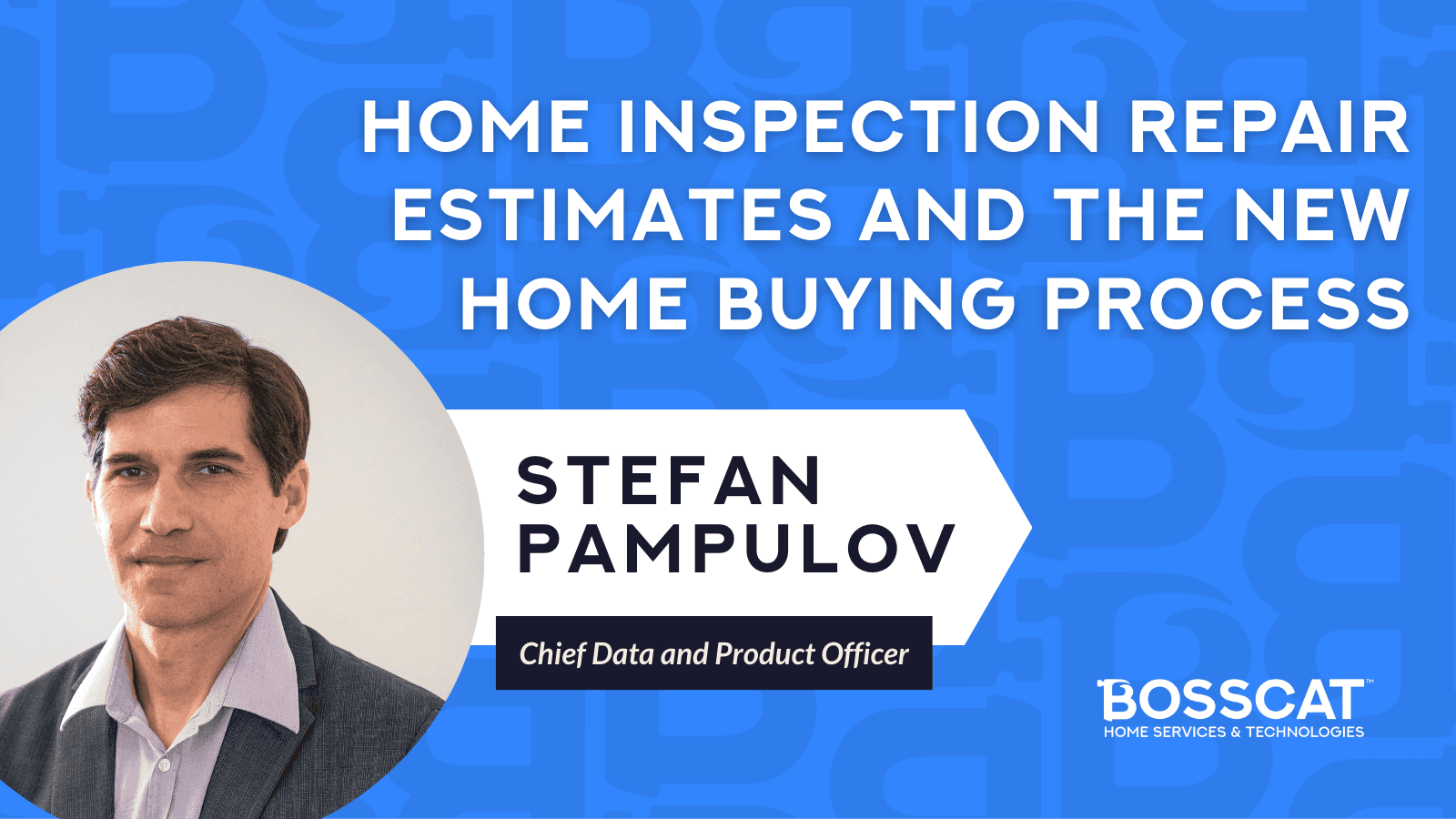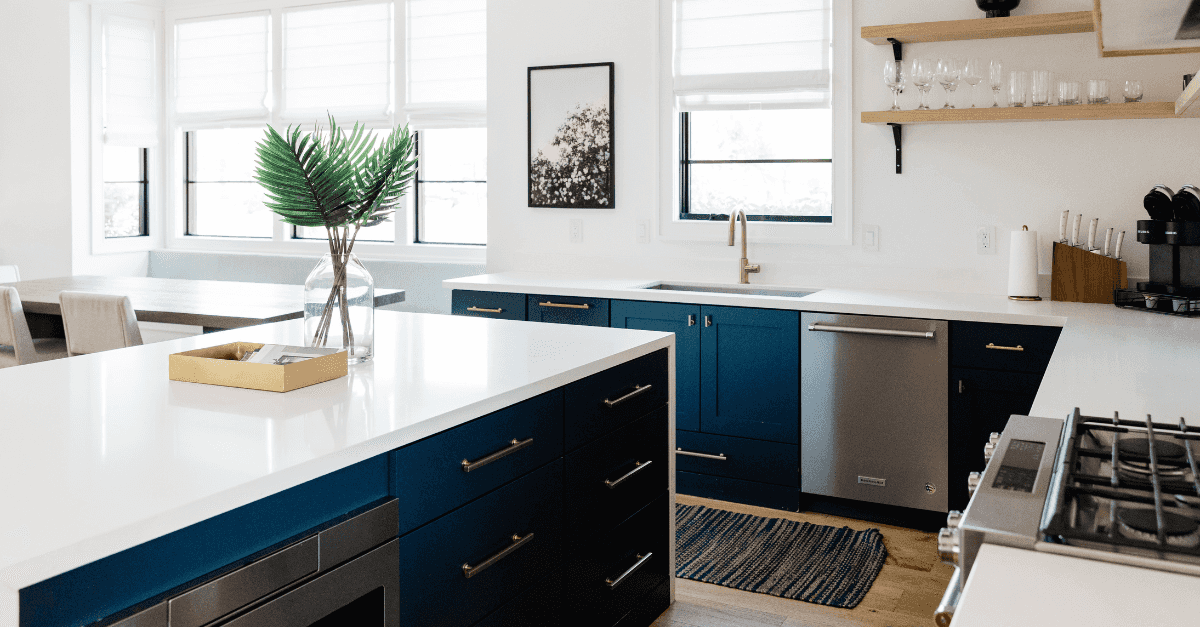How a Nasty Crawl Space Impacts Your Home’s Health

What happens in your crawl space stays in the crawl space, right?
Not exactly.
While it may be more convenient and a lot less scary to not keep tabs on your crawl space, not doing so periodically can cost you big time in the long run. Here are the potential problems that can arise–and how to avoid them.
A Neglected Crawl Space Promotes Mold Growth
An estimated 6 out of 10 homes in the U.S. have had water or moisture in their basement or crawl space. And a dark and wet place is a perfect environment for mold to grow. Mold feeds on organic materials such as wood, paper, and cardboard, and if allowed to take over the crawl space, it can infiltrate other areas of your home and even cause floors to cave in or walls to fall down.
To solve the problem, you’ll need to understand why there’s water down there. A plumbing leak, water seepage from the surrounding soil after heavy rain, or condensation could be responsible.
If you suspect you have mold in your crawl space, get a professional inspection.
Concerned about mold growth in your home? Check out our latest blog post: How to Identify and Eliminate Mold in Your Home
It Can Overwork Your HVAC
If you wonder why you have extremely high electric bills, especially during the wet or cold months, your crawl space could be to blame. An unsealed crawl space accumulates damp or cold air from the outside and allows a significant amount of heat to escape from your home.
You’ll have rooms that are too hot or too cold, depending on the season, and your HVAC system will be working overtime to regulate the indoor temperature. If it’s been some time since you last checked your crawl space, hire a professional to check the condition of the insulation down there. If it’s damaged, the experts will seal ducts, plug any holes, insulate the perimeter of the crawl space, suggest a dehumidifier, or recommend encapsulation to lock out moisture.
It Creates a Foul Odor
If you have an unsealed crawl space with exposed dirt, it may be the source of the unpleasant odors. Considering nearly half of the air we breathe on the first floor of our home comes from the crawl space, it can be very frustrating to have foul odors coming from there. And there are several reasons your subfloor could smell funky.
It could be mold or bacteria growth due to vapor or humidity, a sewage backup could have leaked into the space, or the smell could emanate from pest droppings. The best solution is to remove what’s causing the stench, followed by sealing any gaps and installing a crawl space foundation vapor barrier to prevent moisture and humidity from building up under your home.
It May Decrease the Value of Your Home
Everyone wants a home that looks and smells fresh, clean, and welcoming. Well, if your crawl space is neglected and nasty, it may affect the value of your home by 17 to 23 percent when you decide to sell it. Just imagine a potential buyer coming to check out your house, but there’s a pungent musty odor lingering everywhere.
Home inspectors will also want to check for signs of wood, moisture, and mold damage on the floors exposed to crawl spaces. If you haven’t been taking good care of these often overlooked parts of the home, you may be forced to lower your asking price significantly.
It Invites All Kinds of Pests
A crawl space that is rarely monitored provides a safe harbor for critters seeking warmth and moisture. It can be a haven for rodents, insects, raccoons, and any other creepy crawlers you can think of. Without intervention, animals and insects living in your crawlspace can mean thousands of dollars of damage–and possible structural damage.
A termite infestation, if left untreated, can ruin your home’s wood framing and even bring your home down. Apart from cutting off the food supplies, professionals will mseal the vents and gaps, control moisture levels, then consider encapsulation.
Get Your Crawl Space Inspected
A crawl space that is not checked occasionally can affect your home in a myriad of ways. But the biggest concern is moisture. The dampness creates an unhealthy and cold living environment, triggers mold growth, lowers indoor air quality, increases your energy bills, attracts pests, and affects the value of your property.
Keeping a close eye on your crawl space will allow you to catch problems early and perform timely maintenance so you can live in a safe, healthy, and comfortable home.
Of course, you do need to ensure you hire the right professional for your crawl space repair issues if you want to keep your home in great shape. Get your FREE estimate today!
Sources:
https://budgeting.thenest.com/mold-affect-value-home-22811.html
https://www.thisoldhouse.com/basements/21015315/drying-out-a-wet-basement


